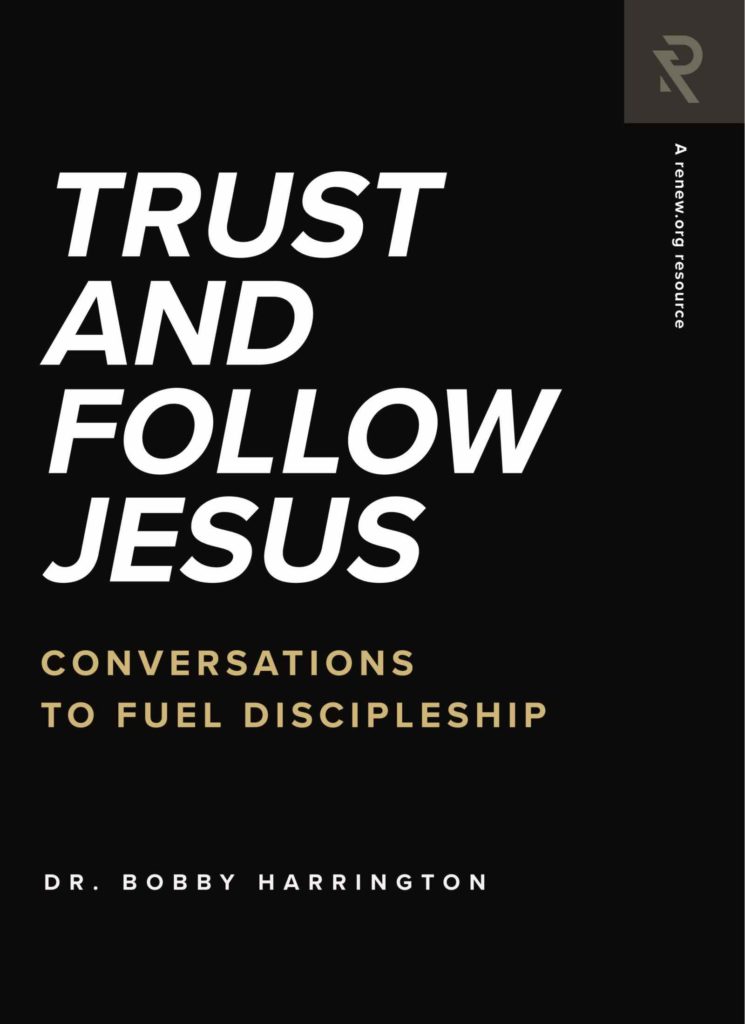
Life-Changing Paragraphs: A Paragraph That Kept Me in Ministry
*Editor’s Note: This is one of a series of articles where I asked leaders to tell me a single paragraph they read which affected the trajectory of their lives.
Q: What’s the backstory on how the paragraph impacted you?
Maybe a dozen years ago, I was at a Dunkin’ Donuts having a conversation with a friend in ministry. I remember expressing to him a frustration I had with how we have just really taken for granted the work of Christ on the cross and our call to follow. The denying ourselves piece of the gospel doesn’t seem to fit for western/American Christians.
My friend asked, “Have you ever read The Cost of Discipleship by Dietrich Bonhoeffer?” So I went to a Christian bookstore, found the book, and started reading it. I remember reading in chapter 2 where he talks about the difference between cheap and costly grace. As I read, I saw what I had been feeling. I thought to myself, Yes, that’s it.
Q: What’s the paragraph?
Here’s the paragraph in chapter 2 which changed things for me:
Costly grace is the gospel which must be sought again and again and again, the gift which must be asked for, the door at which a man must knock. Such grace is costly because it calls us to follow, and it is grace because it calls us to follow Jesus Christ. It is costly because it costs a man his life, and it is grace because it gives a man the only true life. It is costly because it condemns sin, and grace because it justifies the sinner. Above all, it is costly because it cost God the life of his Son: “Ye were bought at a price,” and what has cost God much cannot be cheap for us. Above all, it is grace because God did not reckon his Son too dear a price to pay for our life, but delivered him up for us. Costly grace is the Incarnation of God (Bonhoeffer, Cost of Discipleship).
Q: Was there a particular phrase or line in the paragraph which really struck you? Why?
It was the line, “It is costly because it costs a man his life, and it is grace because it gives a man the only true life.”
This brought into focus both the reality of the cost and the depth of the grace. These seem to be ideas which people hold in competition with each other. But Bonhoeffer puts into perspective why following Jesus brings both of them together. It’s not true grace if it doesn’t cost in that way—costing God and costing us.
When I worked in youth ministry, a consistent theme I faced was kids who were Christian in thought, but not in action. I heard kids say things like, “I will get serious about that later. Right now, I want to have fun.” Or, “One day when I’m an adult, I’ll do what you’re saying.” There was this idea that we can experience the benefits of salvation without being a disciple of Jesus.
Q: How did this paragraph influence the direction of your life?
We Christians have often presented a version of Jesus which isn’t really him. At times, we’ve represented him so poorly that the world says, “Seriously? We see it’s just a Sunday morning thing for you. Your actions don’t indicate that this actually means much to you.”
In struggling with this disappointment with how we often do Christianity, I was at a crossroads. The decision I needed to wrestle with was, Do I really care enough about this? How am I going to end up living my life? In ministry, you’re going to invest so much of your heart in it. Often, the heartaches come home with you. Is it worth it? Some of the heartache was in seeing kids say, “I’ll follow Jesus someday,” and then ending up leaving their fledgling faith behind for good.
Honestly, I was at that place where I could either rededicate myself truly and radically to the mission and message of Jesus, or I could walk away from ministry and do something different. There was another good, better-paying option at the time, and I could have left ministry behind. This paragraph was one of the things which played into my decision to say, “This is worth it.”
Q: As a pastor, how do you translate the idea of costly grace to church people who are already busy doing the best they know how?
First of all, it doesn’t help to try to beat somebody up with what they’re not doing, but rather to cast vision for what God can do. Imagine what God can do through a truly repentant community. Imagine what could happen if we experience God’s presence daily. Move people to what should be, by helping them imagine what could be. Allow them to imagine and envision for themselves why it’s better. It’s kind of a godly sense of imagination.
Also, we really need to help people be more reflective. Encouraging them to ask themselves, “This decision—is this doing it my way or God’s way?” Helping them to realize that doing it on our own doesn’t work; it just brings a lot of heartache and stress and mess. Are we willing to try something different? Love, joy, peace, patience—if we want to be that person, the only way is to go to God and say, “I’m going to do this Your way.”
Imagine what God can do through a truly repentant community.
For me, this paragraph was a call to understand that nobody who truly follows Jesus does it lightly. It requires of you your life, but it’s where you find real life. You think you’re trading something of a lot of value, but this is the treasure in the field, the pearl of great price. You’ve actually traded something nowhere nearly as valuable as what you’re getting. But you only find it by actually doing it, not merely theorizing about it. It’s not until you begin actually following Jesus that you find out what you actually gain.









